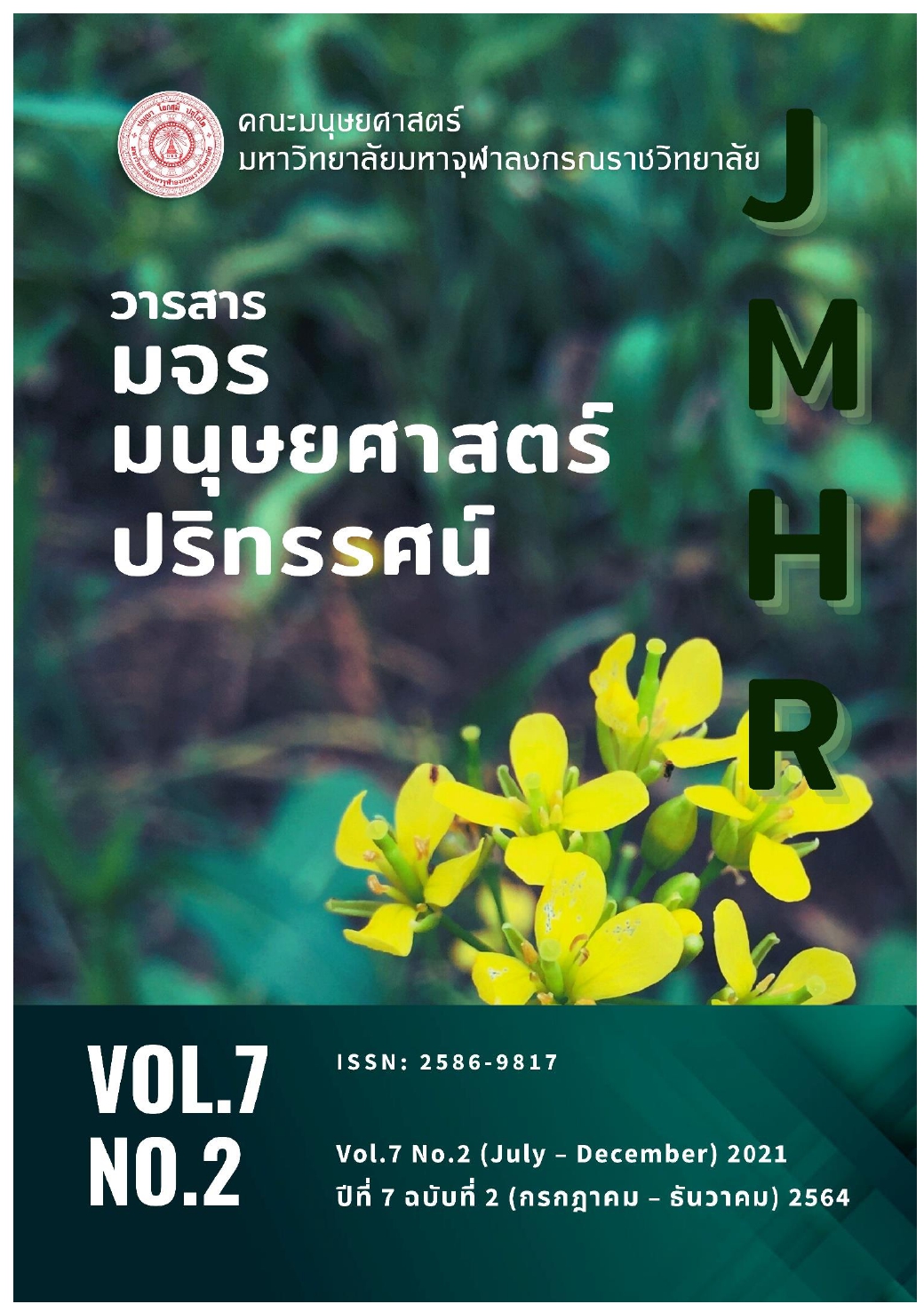การจัดการเรียนรู้ด้วยหลักไตรสิกขาเพื่อพัฒนาผลสัมฤทธิ์ทางการเรียน ของนักเรียนมัธยมศึกษาตอนต้น
คำสำคัญ:
การจัดการเรียนรู้, หลักไตรสิกขา, ผลสัมฤทธิ์ทางการเรียนบทคัดย่อ
บทความวิจัยนี้เป็นการวิจัยเชิงทดลอง (Pre Experimental Research) มีวัตถุประสงค์ 1. เพื่อหาประสิทธิภาพของการจัดการเรียนรู้ด้วยหลักไตรสิกขาเพื่อพัฒนาผลสัมฤทธิ์ทางการเรียนของนักเรียนชั้นมัธยมศึกษาตอนต้น 2. เปรียบเทียบผลสัมฤทธิ์ทางการเรียนของนักเรียนชั้นมัธยมศึกษาตอนต้นที่เรียนด้วยการจัดการเรียนรู้ด้วยหลักไตรสิกขา และ 3) ศึกษาความพึงพอใจของนักเรียนชั้นมัธยมศึกษาตอนต้นที่มีต่อการจัดการเรียนรู้ด้วยหลักไตรสิกขาเพื่อพัฒนาผลสัมฤทธิ์ทางการเรียน กลุ่มตัวอย่างที่ใช้ในการวิจัยครั้งนี้ ได้แก่ นักเรียนชั้นมัธยมศึกษาที่ 3/2 โรงเรียนสระยายโสมวิทยา ตำบลสระยายโสม อำเภออู่ทอง จังหวัดสุพรรณบุรี ได้มาโดยวิธีการเลือกแบบสุ่มอย่าง่าย จำนวน 25 คน เครื่องมือที่ใช้ในการวิจัย ได้แก่ 1) ชุดกิจกรรมการเรียนรู้ด้วยหลักไตรสิกขา วิชาพระพุทธศาสนา เรื่อง ปฐมเทศนา และโอวาทปาฏิโมกข์ จำนวน 4 ชุดการเรียนรู้ 2) แบบวัดผลสัมฤทธิ์ทางการเรียน 3) แบบสอบถามความพึงพอใจของนักเรียน วิเคราะห์ข้อมูลด้วยสถิติ ค่าร้อยละ ค่าเฉลี่ย ส่วนเบี่ยงเบนมาตรฐาน และการทดสอบค่า t-test dependent
ผลการวิจัยพบว่า 1. ชุดกิจกรรมการเรียนรู้ด้วยหลักไตรสิกขา วิชาพระพุทธศาสนา เรื่อง ปฐมเทศนาและโอวาทปาฏิโมกข์ ผลการทดสอบก่อนเรียนมีประสิทธิภาพของกระบวนการเฉลี่ยร้อยละ 78.61 หลังเรียนมีประสิทธิภาพของผลลัพธ์เฉลี่ยร้อยละ 80.08 ซึ่งมีประสิทธิภาพตามเกณฑ์ 80/80 2. นักเรียนที่ได้รับการสอนโดยใช้วิธีการเรียนรู้ด้วยหลักไตรสิกขา มีผลสัมฤทธิ์ทางการเรียนหลังเรียนสูงกว่าก่อนเรียนอย่างมีนัยสำคัญทางสถิติที่ระดับ .05 และ 3) นักเรียนมีความพึงพอใจต่อวิธีการเรียนรู้ด้วยหลักไตรสิกขา อยู่ในระดับมากอย่างมีนัยสำคัญทางสถิติที่ระดับ .05
เอกสารอ้างอิง
กระทรวงศึกษาธิการ. (2552). หลักสูตรแกนกลางการศึกษาขั้นพื้นฐาน พุทธศักราช 2551. กรุงเทพฯ: โรงพิมพ์ชุมนุมสหกรณ์การเกษตรแห่งประเทศไทย.
พระราชบัญญัติการศึกษาแห่งชาติ. (2542), ราชกิจจานุเบกษา, เล่ม 116 ตอนที่ 74 ก.19 สิงหาคม 2542. สืบค้น 20 มิถุนายน 2564, จาก http://www.ratchakitcha.soc.go.th/DATA/PDF/2542/A/074/1.PDF
เพ็ญนภา ชูรัตน์. (2560). การพัฒนาชุดการเรียนรู้ตามหลักไตรสิกขา รายวิชาสังคมศึกษา เรื่องหน้าที่และมารยาทชาวพุทธ กับเรื่องวันสำคัญทางพระพุทธศาสนาและศาสนพิธี. สืบค้น 15 กรกฎาคม 2563, จาก https://www.kruwandee.com/forum.html?wbid=36614
สมเด็จพระพุทธโฆษาจารย์ (ป .อ. ปยุตฺโต). (2546). พจนานุกรมพุทธศาสตร์ ฉบับประมวลธรรม (พิมพ์ครั้งที่ 12). สืบค้น 13 กรกฎาคม 2563, จาก http://84000.org/tipitaka/dic/d_item.php?i =124
“________”. (2554). การศึกษากับการพัฒนาทรัพยากรมนุษย์ (พิมพ์ครั้งที่ 2). กรุงเทพฯ : มูลนิธิพุทธธรรม.
สำนักงานปลัดกระทรวงศึกษาธิการ. (2559). แผนการศึกษาแห่งชาติ ฉบับที่ 12. (พ.ศ. 2560-2564). กรุงเทพฯ: กระทรวงศึกษาธิการ.






